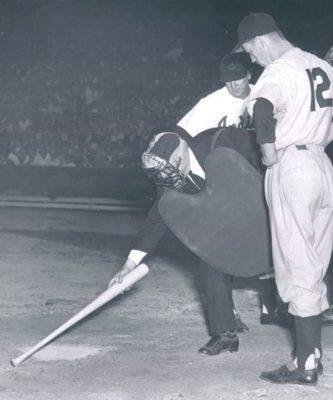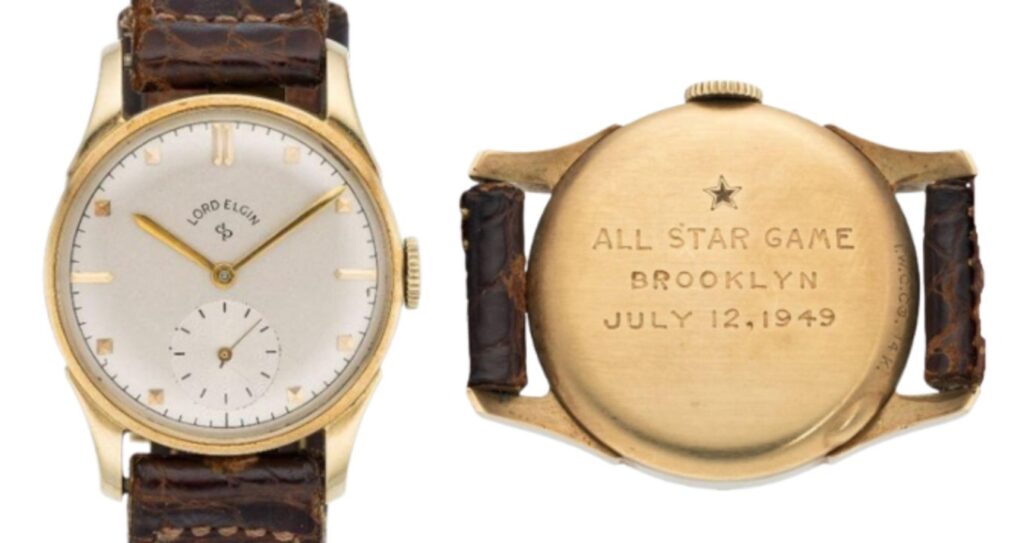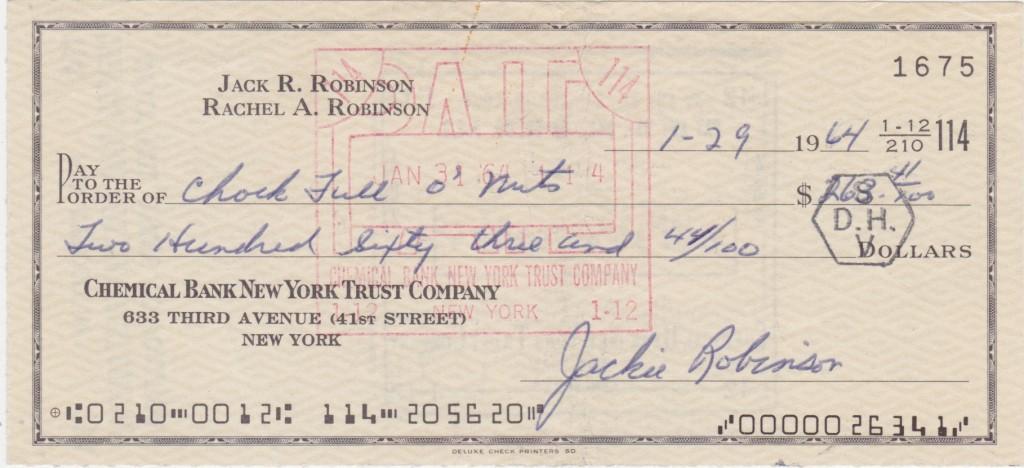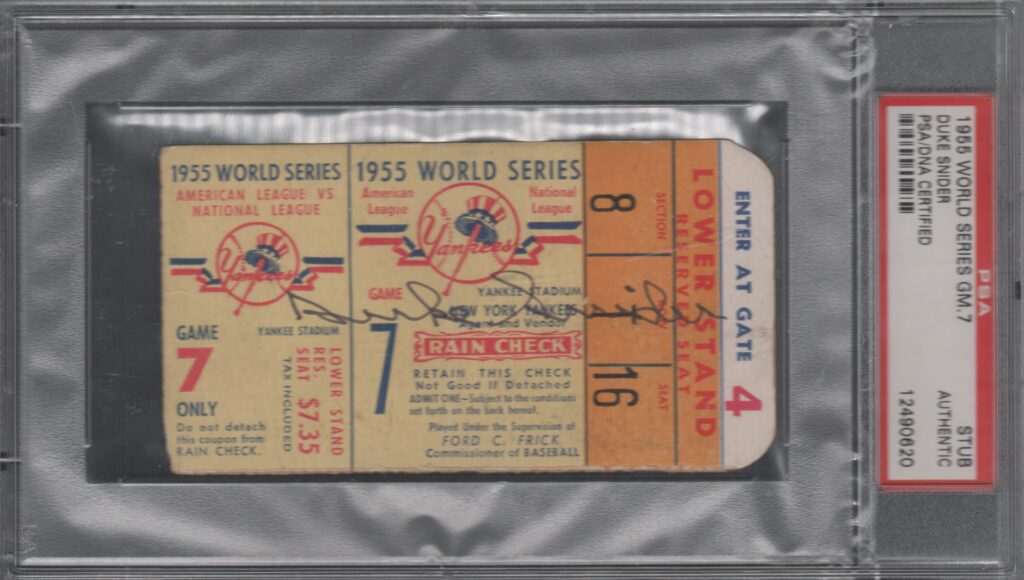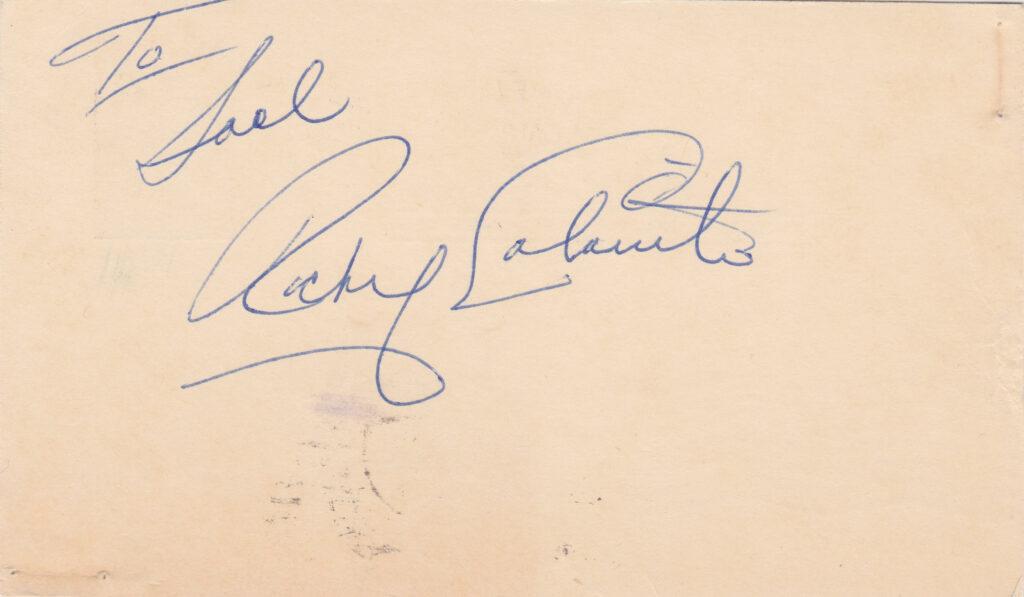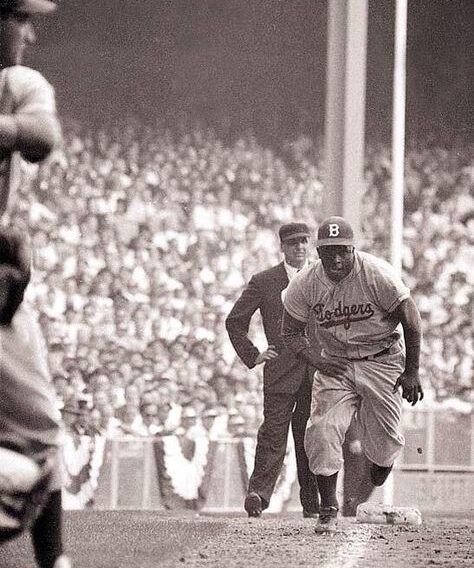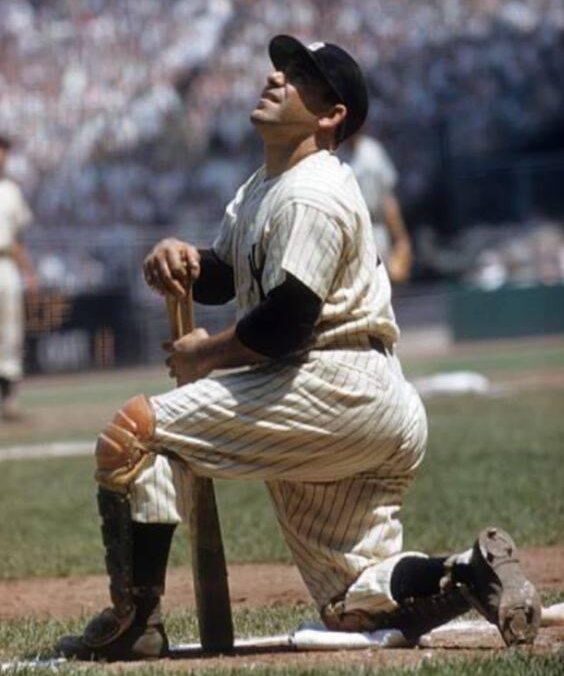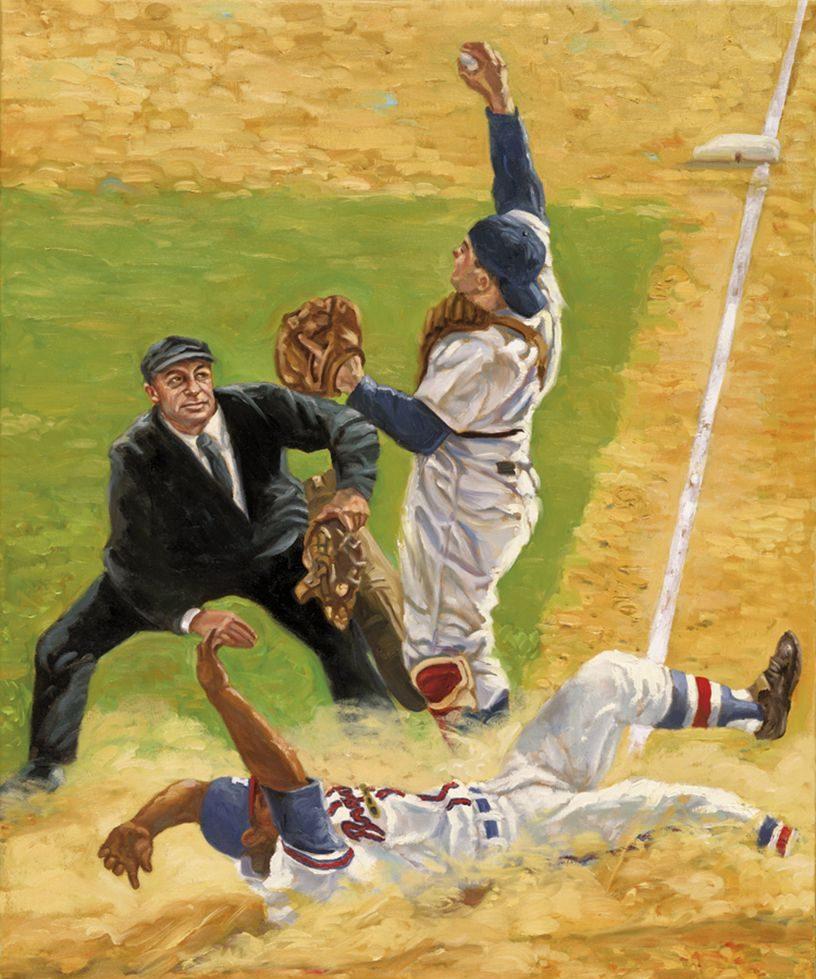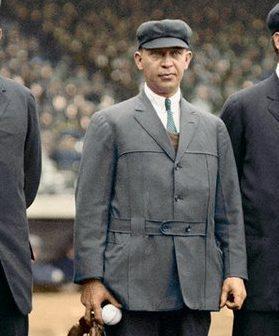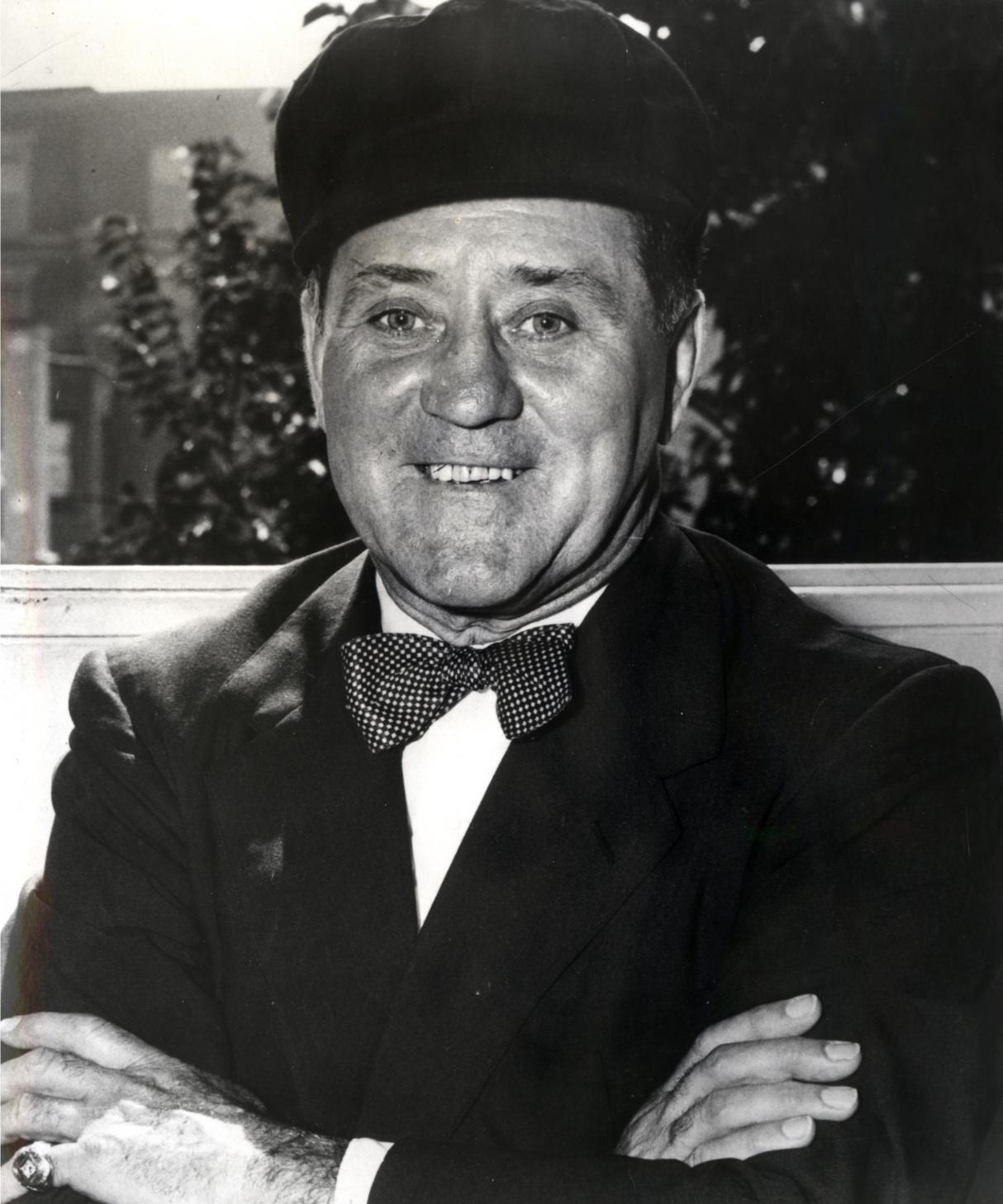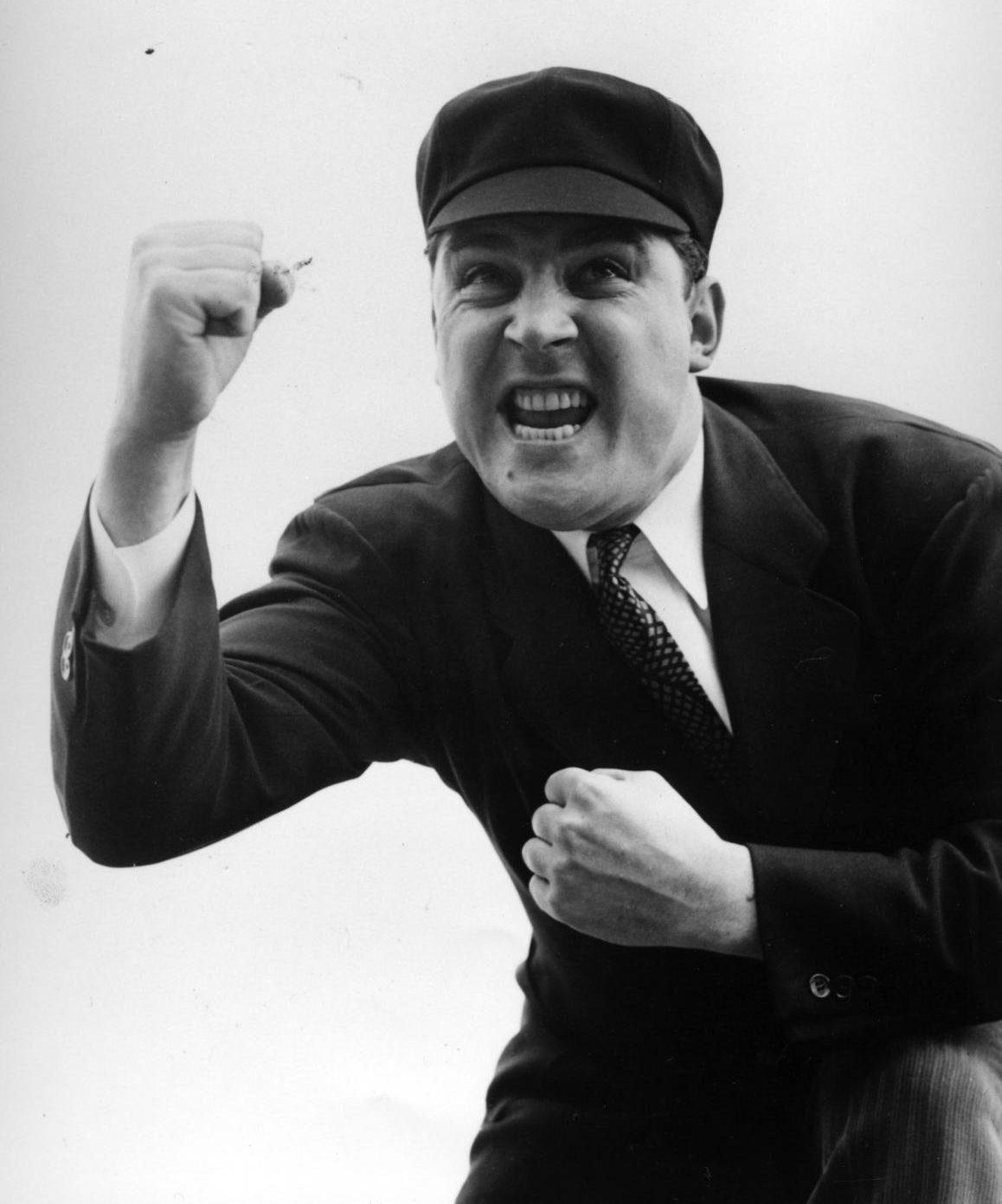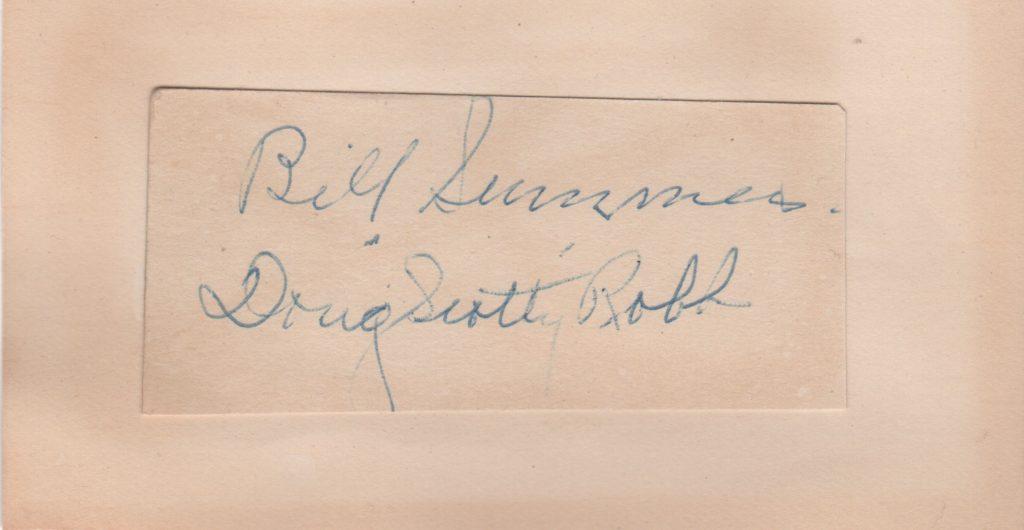
Bill Summers began umpiring professionally in 1921 in the Eastern League. For the next ten seasons Summers worked in the minor leagues, before getting his shot in 1933 when the major leagues expanded umpiring crews to three men.
By 1936, Summers worked the first of his eight World Series. No American League arbiter ever umpired in more Fall Classics. Summers also set a record by calling balls and strikes in seven all star games. Only two other men, Hall of Famers Al Barlick and Doug Harvey, have umpired in seven mid-Summer Classics.
The singular call for which Summers is best remember was his “Safe!” call when Jackie Robinson attempted to steal home in the 1955 World Series. Yankee catcher Yogi Berra immediately removed his mask and began arguing with the 5’8″ 200 pound Summers.
Summers continued meaningful contributions to the game late in his career as a member of the Rules Committee. There he helped complete a major overhaul of the rulebook with rules being organized into logical subsections.
In 1955 Summers became the Major Leagues’ senior umpire in terms of service, a position he held until he retired after the 1959 World Series. At 63 years old, he was the oldest umpire ever to serve on an American League staff.
Shown here is Summers’ signature along with that of fellow arbiter Douglass “Scotty” Robb. Many believe Bill Summers deserves induction into Baseball’s Hall of Fame.
Rumor has it that a grudge-holding Berra did everything in his power to keep Summers out of Cooperstown.
